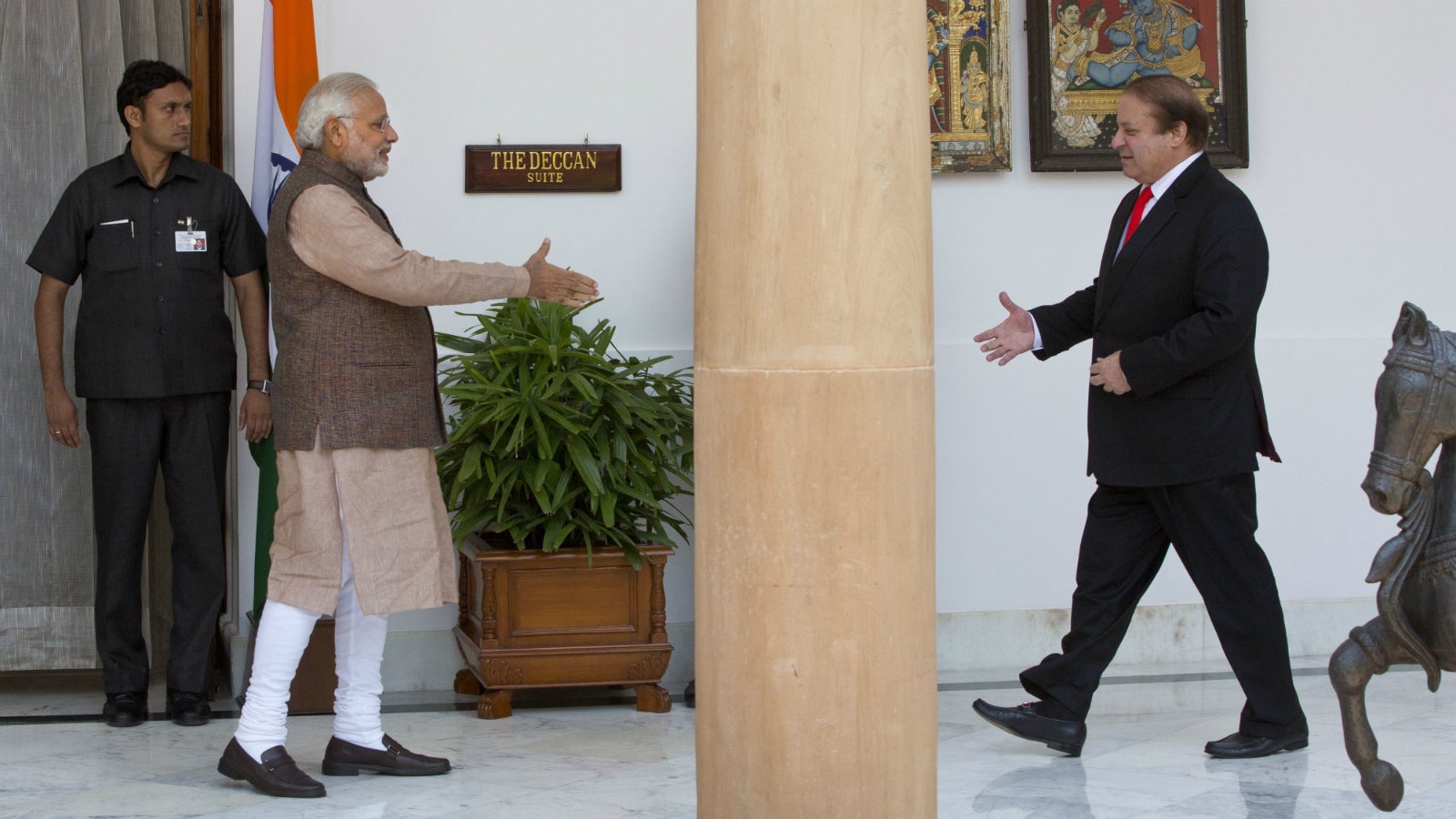Narendra Modi in Kerala, Sushma Swaraj at the UN: India unleashes diplomatic offensive against Pakistan
India’s diplomatic big guns are now on the offensive.


India’s diplomatic big guns are now on the offensive.
Days after the country described Pakistan as part of the ”Ivy League of terrorism,” foreign minister Sushma Swaraj will take the stage at the United Nations General Assembly in New York today (Sept. 26). A foreign ministry spokesperson said the ”the whole world and the entire nation” look forward to Swaraj’s speech.
After a short period of tense nerves and wild speculation following the massacre of 18 of its soldiers in Uri in Jammu and Kashmir, India has once again chosen calm but vigorous diplomacy over armed action against Pakistan for its alleged role in the carnage.
Swaraj is likely to hit back at Pakistan’s prime minister, Nawaz Sharif, who on Sept. 24 said the Uri attack could be a “reaction to the atrocities in Kashmir.” The region has been on the boil since July following the killing of Burhan Wani, a Hizbul Mujahideen terrorist. New Delhi believes Pakistan is directly involved in inciting anti-India uprisings in the state.
The Narendra Modi government has come under immense pressure—within and from outside Modi’s Bharatiya Janata Party (BJP)—to retaliate ever since the attack in Uri last week.
For instance, senior party official Ram Madhav “sought a jaw for a tooth.” On Saturday (Sept. 24), BJP’s Rajya Sabha member Subramanian Swamy asked 10 million Indians to be ready to die in case of a nuclear war, asserting that ”our nuclear bombs will wipe off Pakistan from (the) world’s map.”
However, Modi himself struck a completely different note over the weekend.
At a party meet in Kerala, he sought to change the narrative by referring to the contrasting development trajectories of India and Pakistan. India is an exporter of software, Pakistan one of terrorism, he said pointedly.
“In effect, Modi said that he isn’t going to war against Pakistan to avenge Uri. This U-turn, from promising hard action against Pakistan to changing the narrative away from war, might be hypocritical. Modi has learnt (that) it is easier to demand replying (to) Pakistan ‘in its own language’ than actually doing so,” Shivam Vij wrote in HuffPost India.
Modi did have a few tough words, though, to assuage his hardline constituency. “Let the terrorists make no mistake, India will never forget … We will leave no stone unturned to isolate Pakistan in the world,” he said.
Meanwhile, the Modi government is also reportedly weighing its options on the World Bank-brokered Indus Water Treaty signed between India and Pakistan in 1960. The treaty gives Pakistan exclusive rights over the Indus, Chenab, and Jhelum rivers, two of which originate in India.
“This is an issue which is being addressed bilaterally. But let me make a basic point. Eventually, any cooperative arrangement requires goodwill and mutual trust on both sides,” a spokesperson for India’s foreign affairs ministry said last week. ”For any such treaty to work, it is important there must be mutual trust and cooperation. It cannot be a one-sided affair.”
For now, though, all eyes will be on the Indian foreign minister.